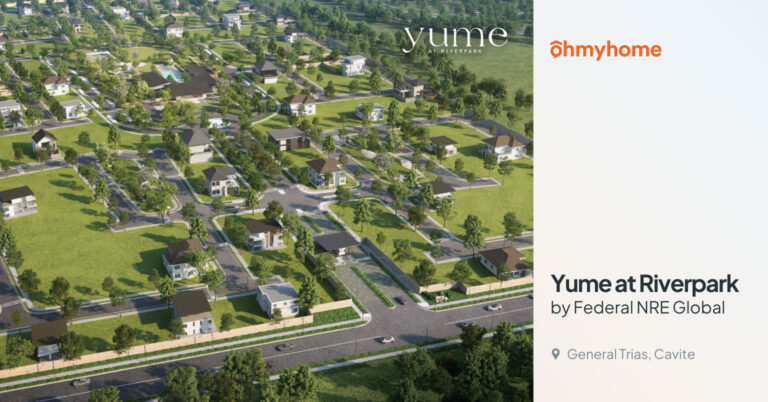The Philippines is currently turning heads as one of the hottest property investment destinations worldwide. Understandably, many foreign investors now want to get in on the action. However, jumping blindly into Philippine property investing without knowing the specifics might find themselves biting off more than they can chew. This includes learning about buying restrictions on foreign investors or taxation rates. For those who want to learn more about local properties, here’s a handy guide on Philippine real estate investing for foreigners.
Can Foreigners Own Philippine Properties?
Let’s start this guide by establishing what types of Philippine properties are available to foreign investors. Under current Philippine law, only Filipinos or Filipino companies can own land in the country. Corporations purchasing land must have at least 60% Filipino ownership. Note that the restriction on foreign ownership is for land, as buildings are another matter. Foreigners can own units in a condominium building or townhouse complex as long as ownership is 60% Filipino. In addition, foreign investors can also lease
Land ownership restrictions were placed for national interest and to ensure that the country’s land remains in the hands of locals. However, the country also recognizes that many foreign investors would want living space and additional income sources while here. For this reason, foreigners can own buildings (or parts thereof) but not the land where they stand. Additionally, foreigners can circumvent the land restriction by marrying a Filipino. However, the land title would automatically be in the Filipino’s name). In addition, they can also buy property once they secure a Special Resident Retirees Visa (SSRV), which is renewed annually.
Philippine Real Estate Investing for Foreigners: Leasing Properties
Like any other investment, buying property will come with the requisite fees and taxes. This includes paying the documentary tax, which is 1.5% of the contract price or fair market value (whichever is higher). A purchase also comes with a transfer tax between 0.5% and 0.75% of the purchase price and the title registration fee equivalent to 0.25% of the purchase price or fair market value. Then, there are the usual incidental expenses like notary public fees, etc. A safe assumption to make when buying property is to allot around 2-3% markup to cover these expenses.
Now comes the investment part. Letting your purchased property won’t do, especially in an active market such as the Philippines. Depending on your purchase agreement, owners can rent out their condo for long or short-term stays. Long-term leases are ideal for residences in the country’s major business districts, where many professionals prefer living near their workplaces to avoid Metro Manila’s infamous commutes. Meanwhile, short-term stays are great for resort-themed condominiums that offer appealing amenities such as pools and sports facilities. Short leases are also ideal for beachfront properties and condominiums in tourist-heavy areas such as Tagaytay and Baguio.
Taxes for Income on Leased Properties
Before putting up a “For Rent” sign on your property, make sure you apply for a business permit first. This ensures that you have the necessary permission to enter into transactions. It also means that the government can collect the right taxes on your income. So, how much should you expect to pay in terms of taxes for leased properties?
VAT
A 12% value-added tax (VAT) is added to most goods and services in the Philippines. However, a business owner must hit a threshold of P3 million in revenue in order to charge VAT. Note that this threshold applies to all properties listed by the owner. If the total annual income falls below P3 million, the landlord can instead pay a percentage tax equivalent to 3% of the rent income.
The good news about VAT is that landlords pass on the tax to end users. In this case, the tenants are on the hook for VAT.
Income Tax
Rent is taxed accordingly as income for the property owner. The National Internal Revenue Code of 1997, or Tax Code, specifies the applicable tax rates depending on the property owner’s residence status:
- Filipino property owners: 25% of the gross rental income
- Resident foreigners: 32%
- Non-resident foreigners: 35%
By definition, a resident alien is someone living in the Philippines for at least two years. Anything less than that makes a foreigner a non-resident alien. In addition, property owners can deduct related expenses from their income to lower their tax payments. This includes repair and maintenance costs, depreciation costs, taxes, interest on mortgage payments, and management fees.
Philippine Real Estate Investing for Foreigners: Flipping Properties
The second part of our guide on Philippine real estate investing for foreigners deals with flipping properties. The great thing about investing in properties is that given a certain amount of time, the value will often go up. This is especially true when you buy properties at locations with amazing growth potential. Once you find your properties way above your buying price, it’s natural to flip them and earn a tidy profit. Then rinse and repeat with other properties. When unloading your assets, how much will the Philippine government take from you in terms of taxes?
Before flipping your property, make sure that all property tax payments are paid in full. Unpaid taxes can put a snag in any ongoing negotiations. Plus, the government has the right to claim properties that haven’t been paying their taxes. It’s best to steer clear of preventable problems like this.
Capital Gains Tax
The sale of any property subjects the seller to a capital gains tax. This is approximately 6% of the contract price, fair market value, or zonal price, whichever is highest. The capital gains tax is a one-time payment charged to the seller. However, most sellers usually tack on the cost to the final price to cover the tax. Note however that when your property’s ownership is listed under a foreign corporation, the capital gains tax swells to a fixed 30%.
Other Fees: Developer Fees and Broker Commissions
Some homeowners might need assistance from third-party brokers or agents to find buyers for their properties. This entails giving them between 5% to 10% of the contract price as commissions. Developers can also demand a commission of around 3% if the owner flips a brand-new or pre-selling property.
Notary fees and other documentation requirements (certified true copies, etc) will also find their way to the table, so make sure you make some allowances to cover for them.
Looking for the Best Beachfront Properties in the Philippines? Ohmyhome Leads the Way!
If you want to become a property investor in the Philippines but don’t know where to start, check out Ohmyhome Philippines. We are the country’s premier property tech platform that’s home to thousands of property listings from over 200 of the country’s best developers.
Ohmyhome’s licensed real estate professionals and top-notch customer service staff can help you learn more about Philippine property investors. We’ll help you find the best properties for sale and even help you flip your homes at the right price. Our top-notch customer service staff will also be on hand to assist you in documentation, payments, and taxation all throughout the purchase process.
Simply sign up for a free account and help becomes available immediately. Join Ohmyhome now and experience the best in Philippine real estate investing!






















































